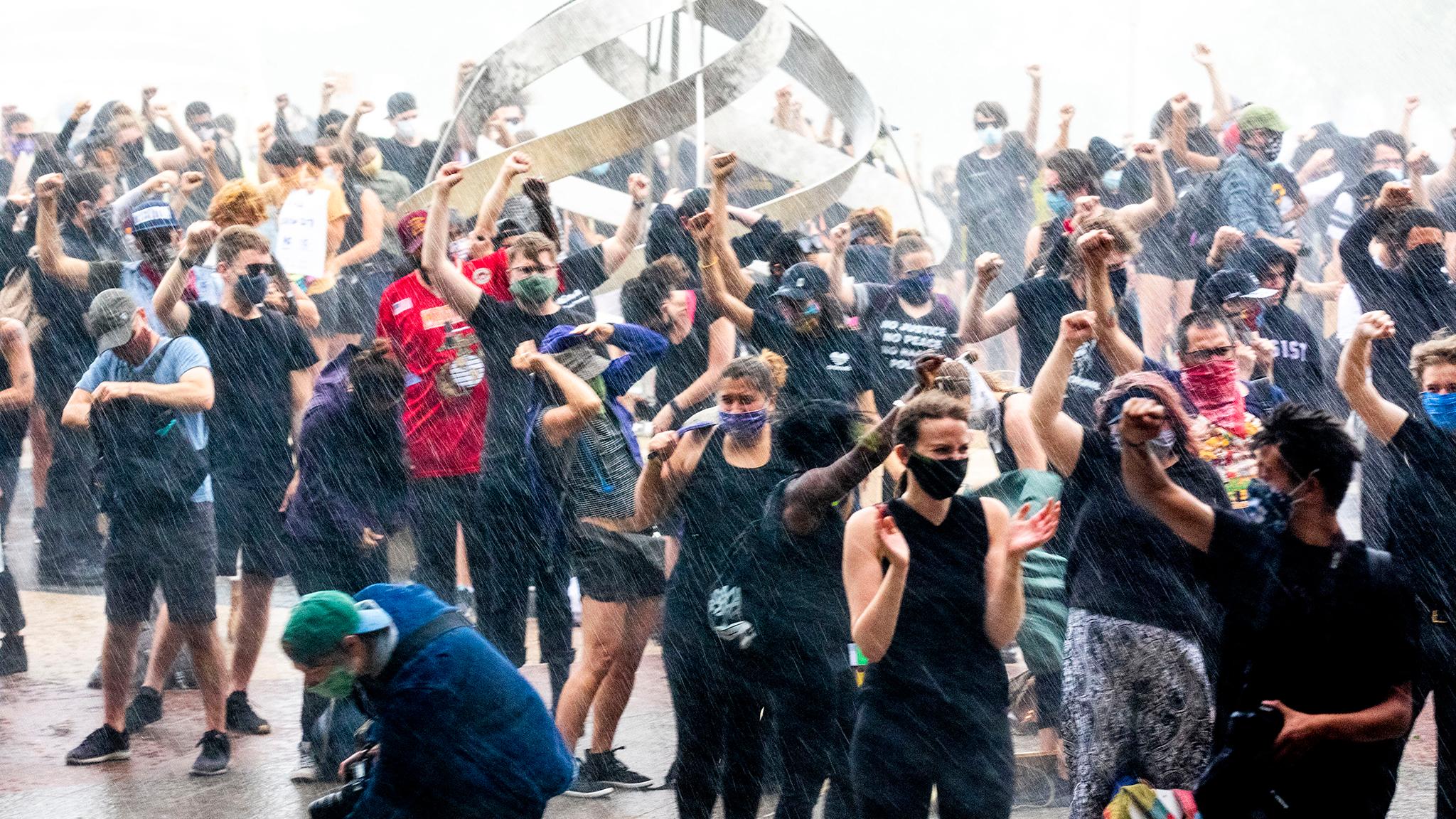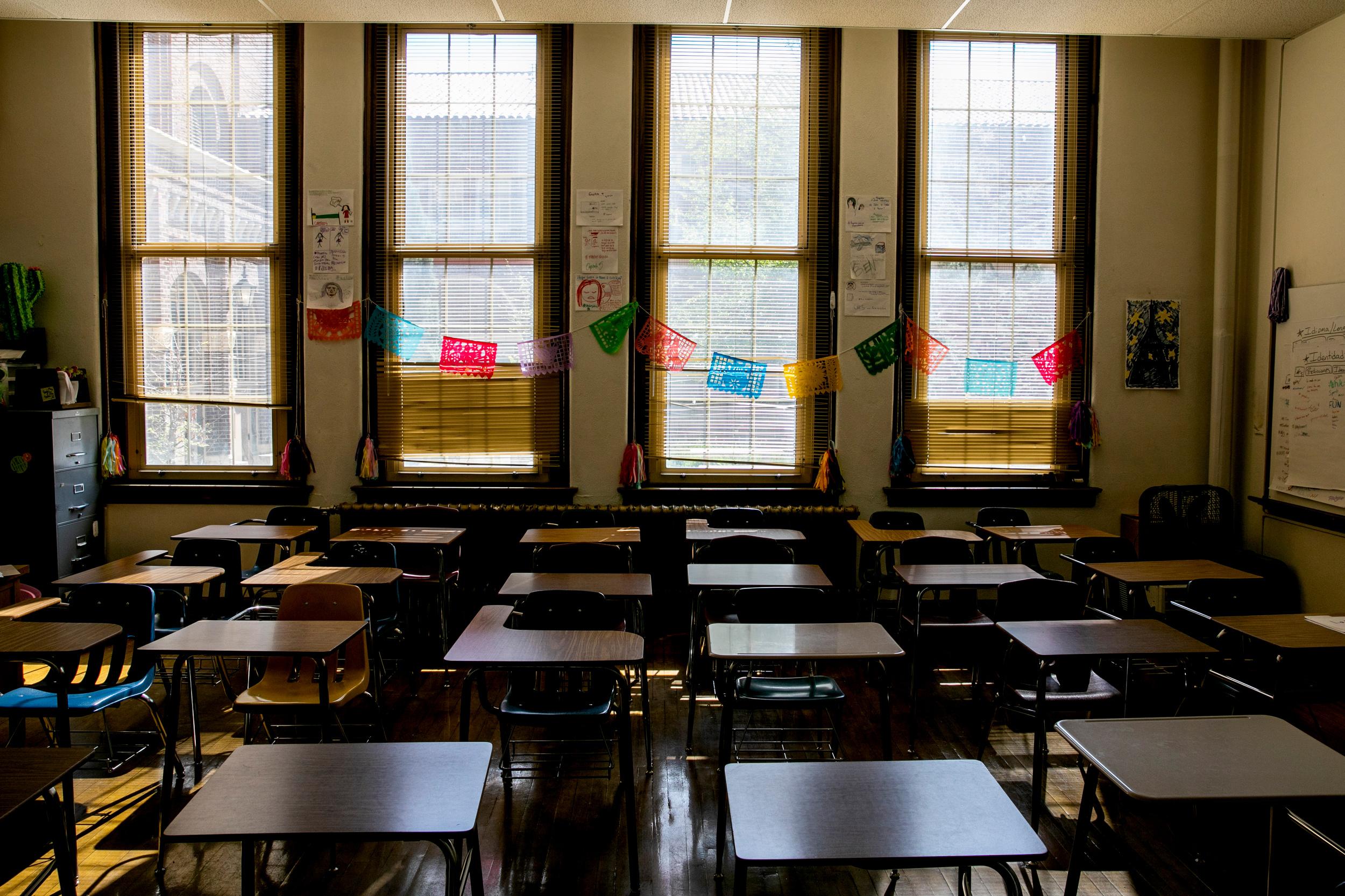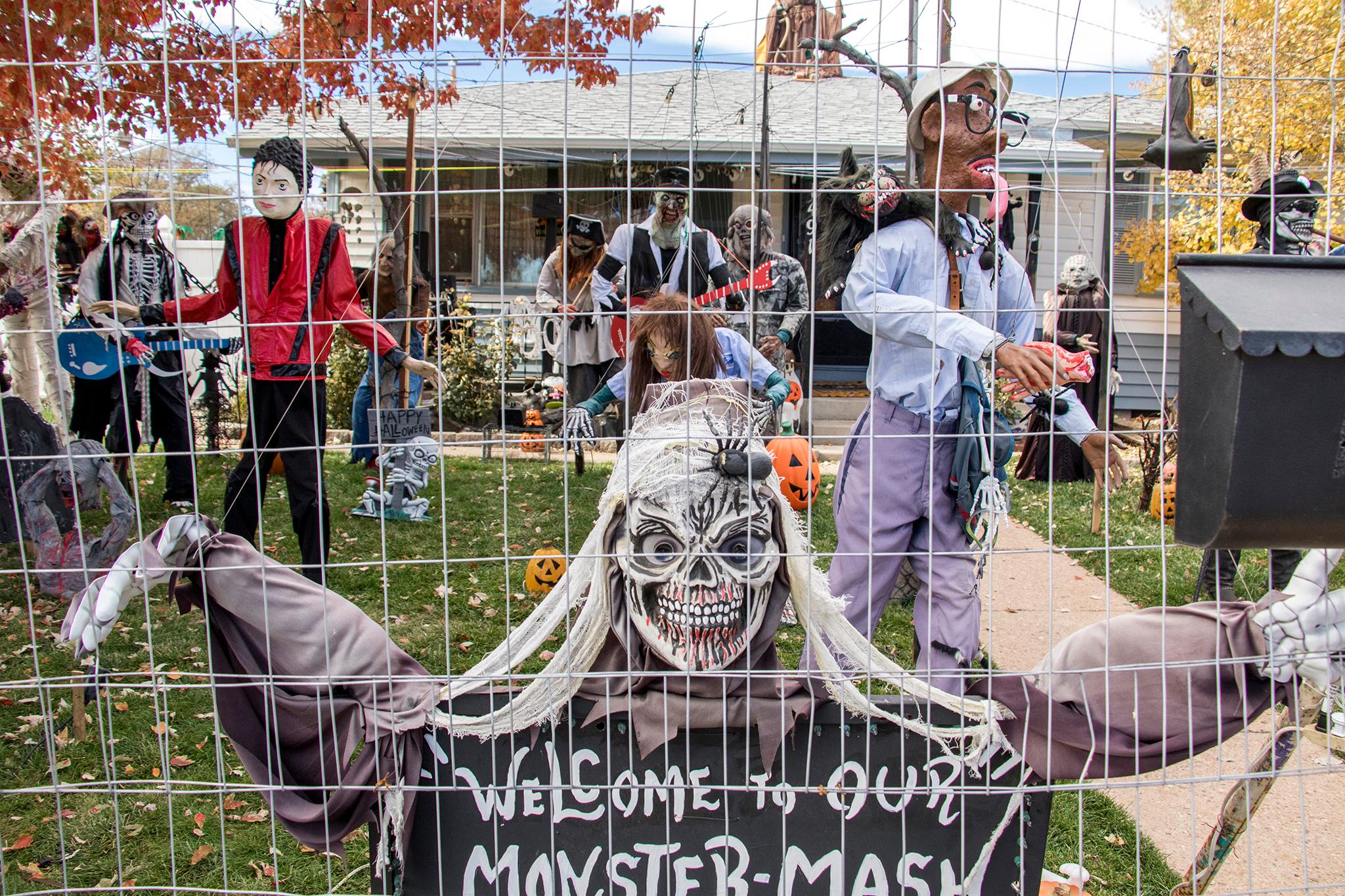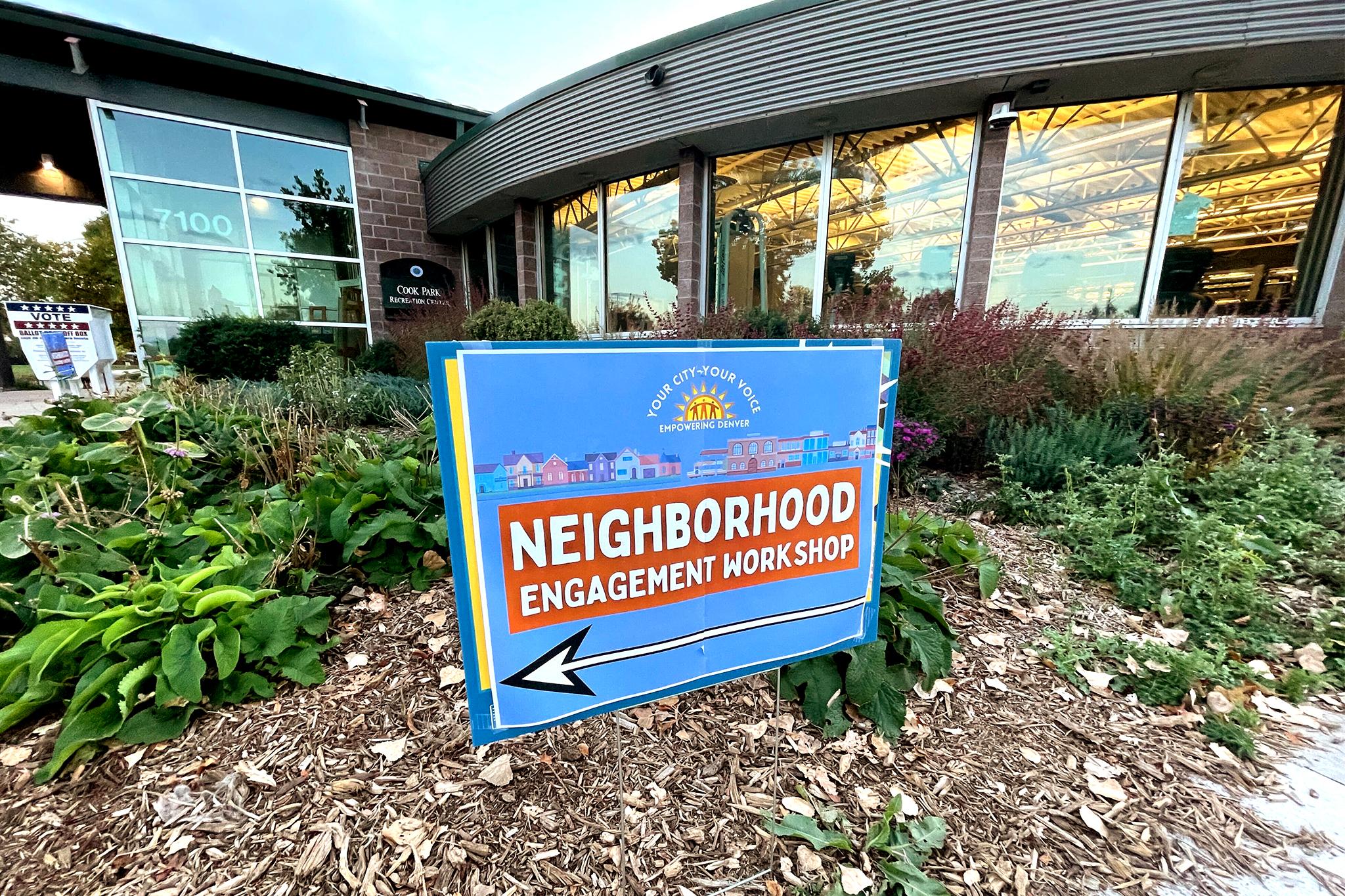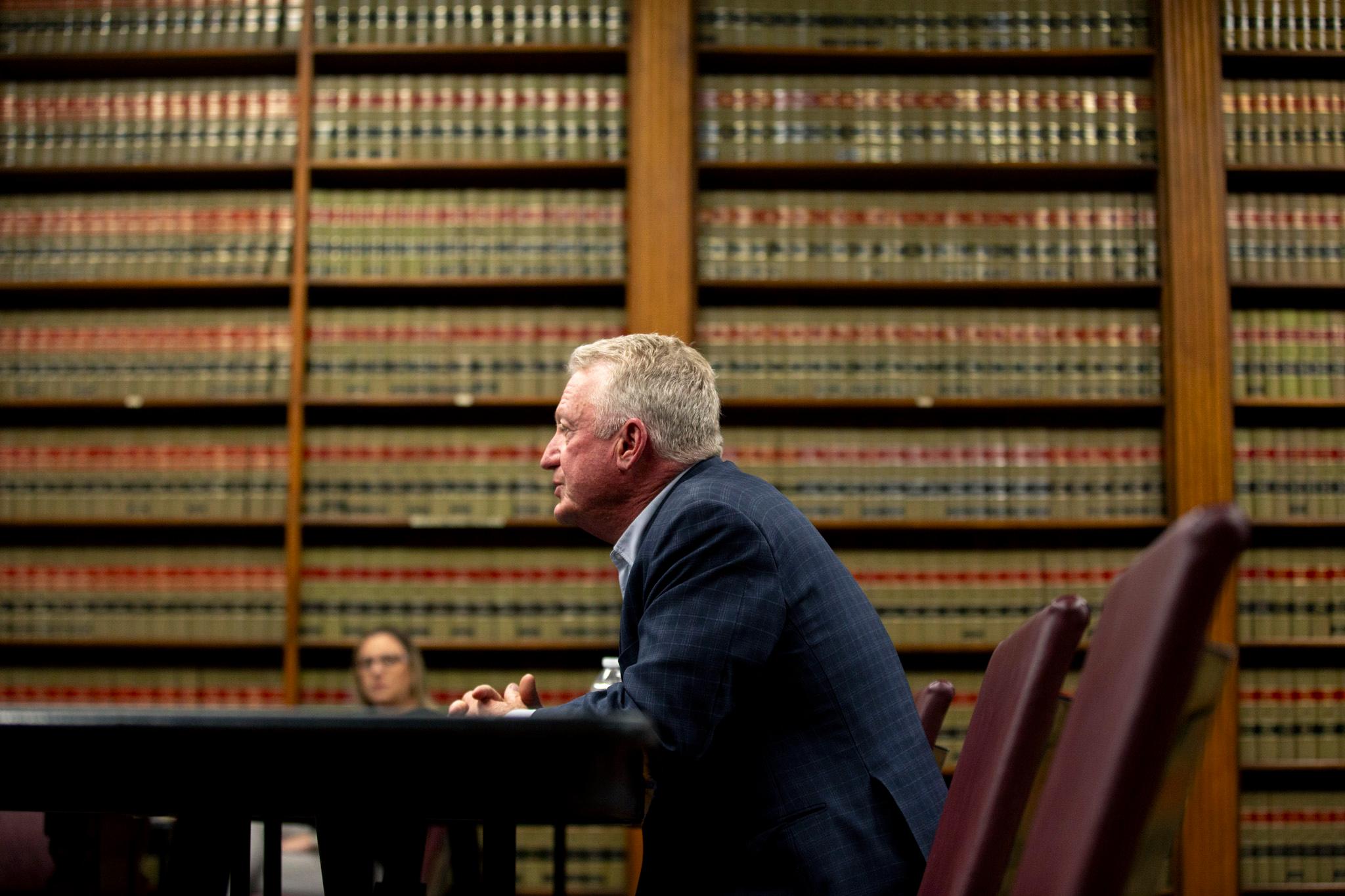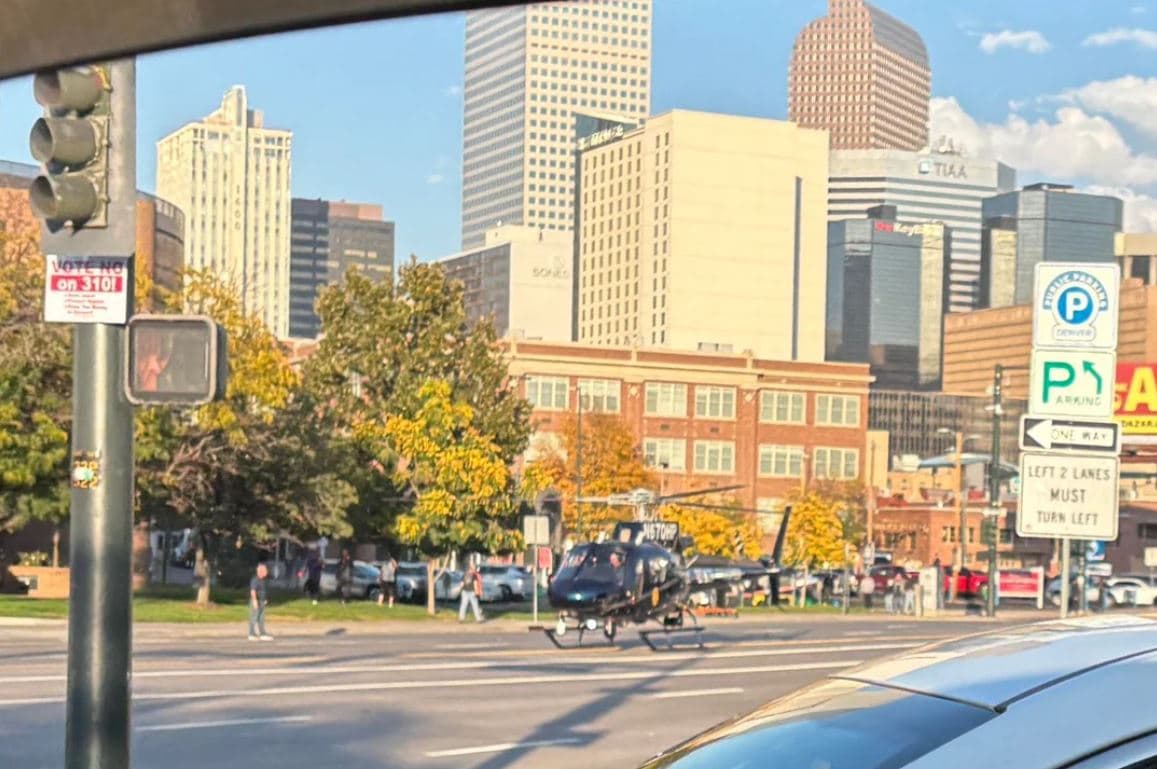Despite a torrential downpour, some protesters rallying against police brutality remained in front of Aurora's municipal building all afternoon on Saturday. Those that stayed during the rain held up their hands for Elijah McClain, a 23-year-old who was killed during an interaction with Aurora police last year.
Candace Bailey, an organizer and emcee of the event, said she and McClain's family have dealt with conflicting feelings since protests began swamping Denver's streets in reaction to the killing of George Floyd in Minneapolis.
"When we were out here for Elijah, there were 20 of us," she recalled. Bailey thought of McClain's mother, Sheneen: "How could she possibly feel in these moments where, nationally, George Floyd set the world on fire? It was almost like Elijah was swept under the carpet, and that his life was just taken in complete vain."
This rally was evidence that a larger movement is emerging from the tense standoffs with police a week ago. The crowd did not chant George Floyd's name once. Instead, they chanted, "Elijah McClain." Speakers focused on a broader conversation about racism and police brutality at the local level, and they talked about more than police.
"Today, I see all of your faces. And although it happened because of George Floyd," Bailey said, "if we're not dealing with the atrocities, with the murders, with the brutality inside of Aurora, we have no business shouting another person's name."
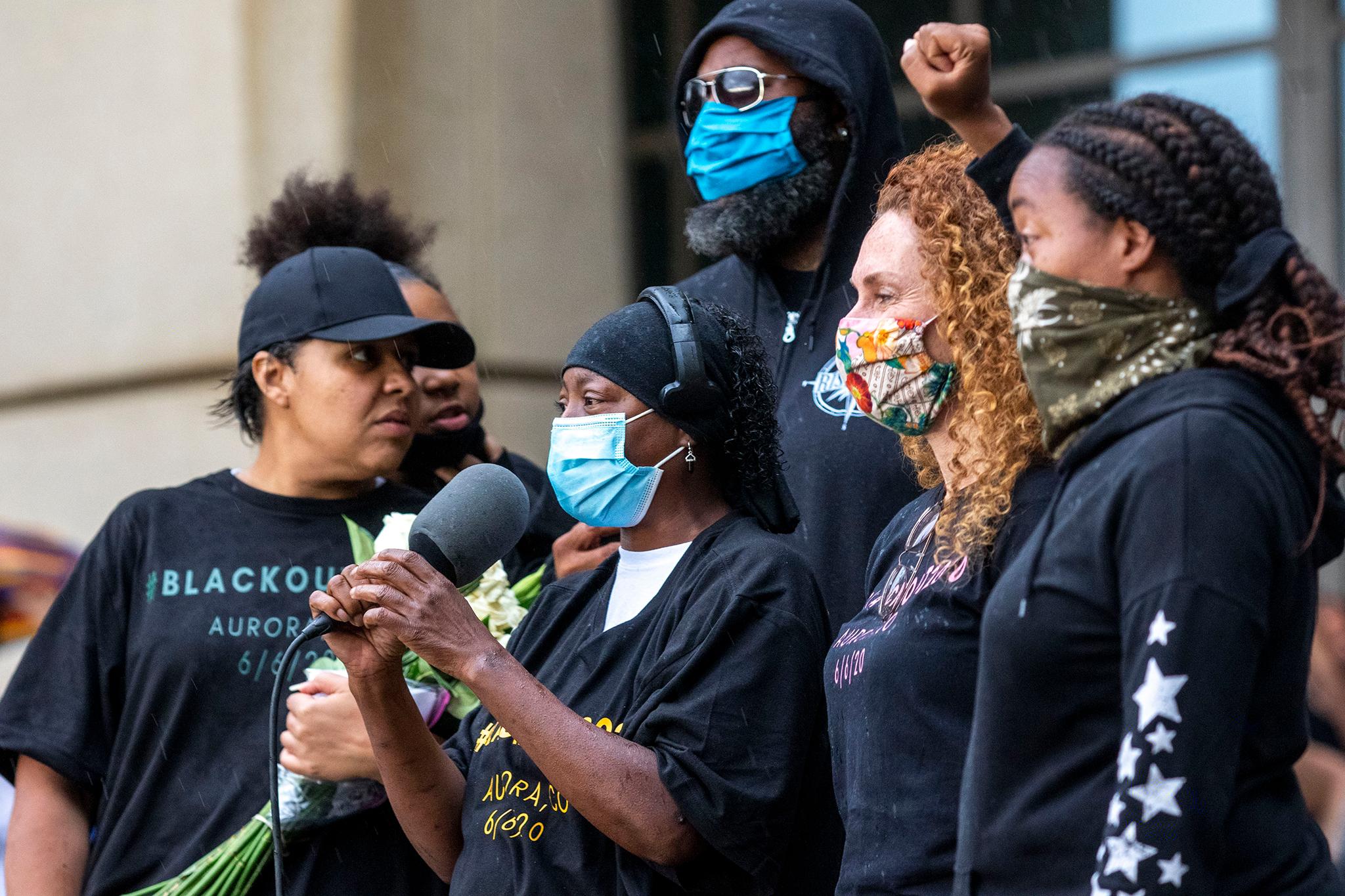
McClain died on August 24, 2019.
He was walking near Colfax Avenue in Aurora when someone called police to report a "sketchy" man flailing his arms and wearing a ski mask, which he often donned because he had anemia. After a brief exchange and despite no evidence that he had committed a crime, three officers wrangled 140-pound McClain to the ground. An officer claimed he tried to take his gun from its holster. The body-cam footage is limited to audio, and McClain can be heard saying he was in pain and didn't have a gun. "I don't do that kind of stuff," he told them.
An officer put McClain in a carotid control hold, a kind of stranglehold. He was handcuffed and vomited multiple times. Responding EMTs then injected him with ketamine on the ride to the hospital to sedate him, they said. He suffered cardiac arrest in the ambulance, and was declared brain dead three days later in the hospital.
In early February, a review board cleared the three officers who had apprehended McClain.
The community's response was loud enough that newly sworn-in Mike Coffman said he would make handling the case among his first priorities as Aurora's mayor. Still, Bailey and Sheneen McClain both said community support was lacking.
At the rally Saturday, 18-year-old Ciriniti Gurule said she hadn't heard of McClain until she began attending protests at the state Capitol this week.
Hashim Coates, a longtime community activist, said weak media coverage partially explains why the story didn't spread as far it should have when McClain died.
He said people who have been watching this case closely still have a lot of questions: Why were so many officers needed to subdue a 140-pound "child?" How could McClain's death not be deemed a homicide, "if a substance that entered his body that was not of his own will and it caused him to die?"
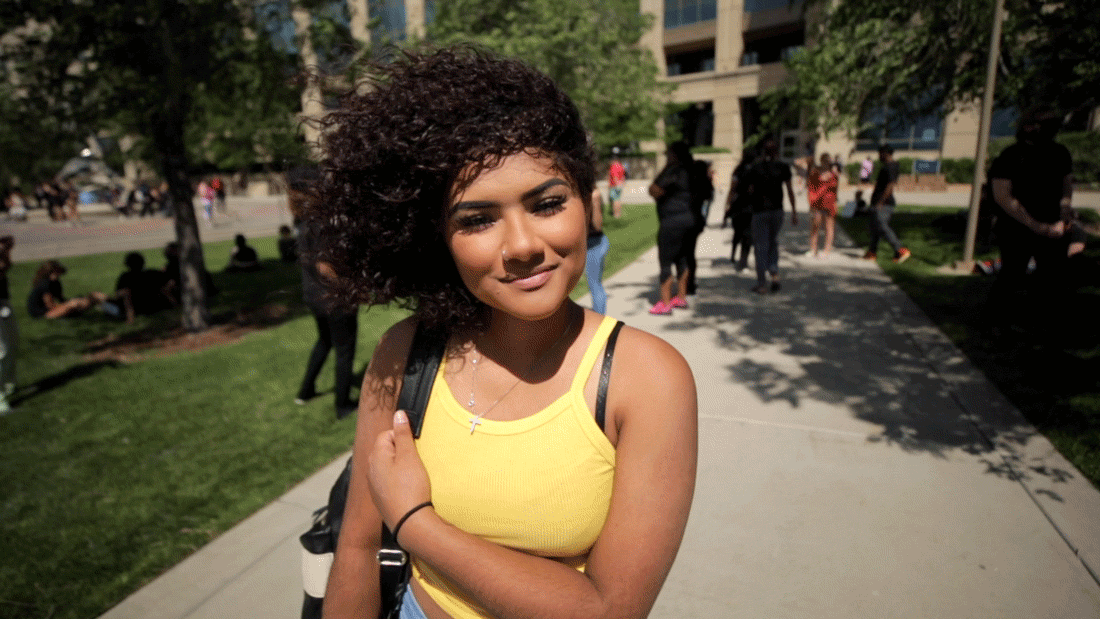
Protesters pushed for new laws, better education and an end to violence in Denver's neighborhoods.
Sheneen McClain's message to the crowd: pass Senate Bill 20-217, known as the Police Integrity Transparency and Accountability Act. Senate Democrats introduced the measure last Wednesday. It has since passed its first two committee hearings, though Republican senators and state law enforcement officials expressed concerns with its sweeping language.
As currently written, the measure would require use of body cameras and set up a statewide system to report police officers with outstanding records of poor behavior. It would ban choke holds, like the one used on McClain when he died.
The bill also would eliminate something called "qualified immunity" for police officers, which means they cannot be held personally liable when someone dies as a result of their actions. If officers no longer have this protection, they could be sued by mothers of children killed by police, like Sheneen McClain. It's one of several major sticking points that will be debated as the bill heads for a debate by the full state senate.
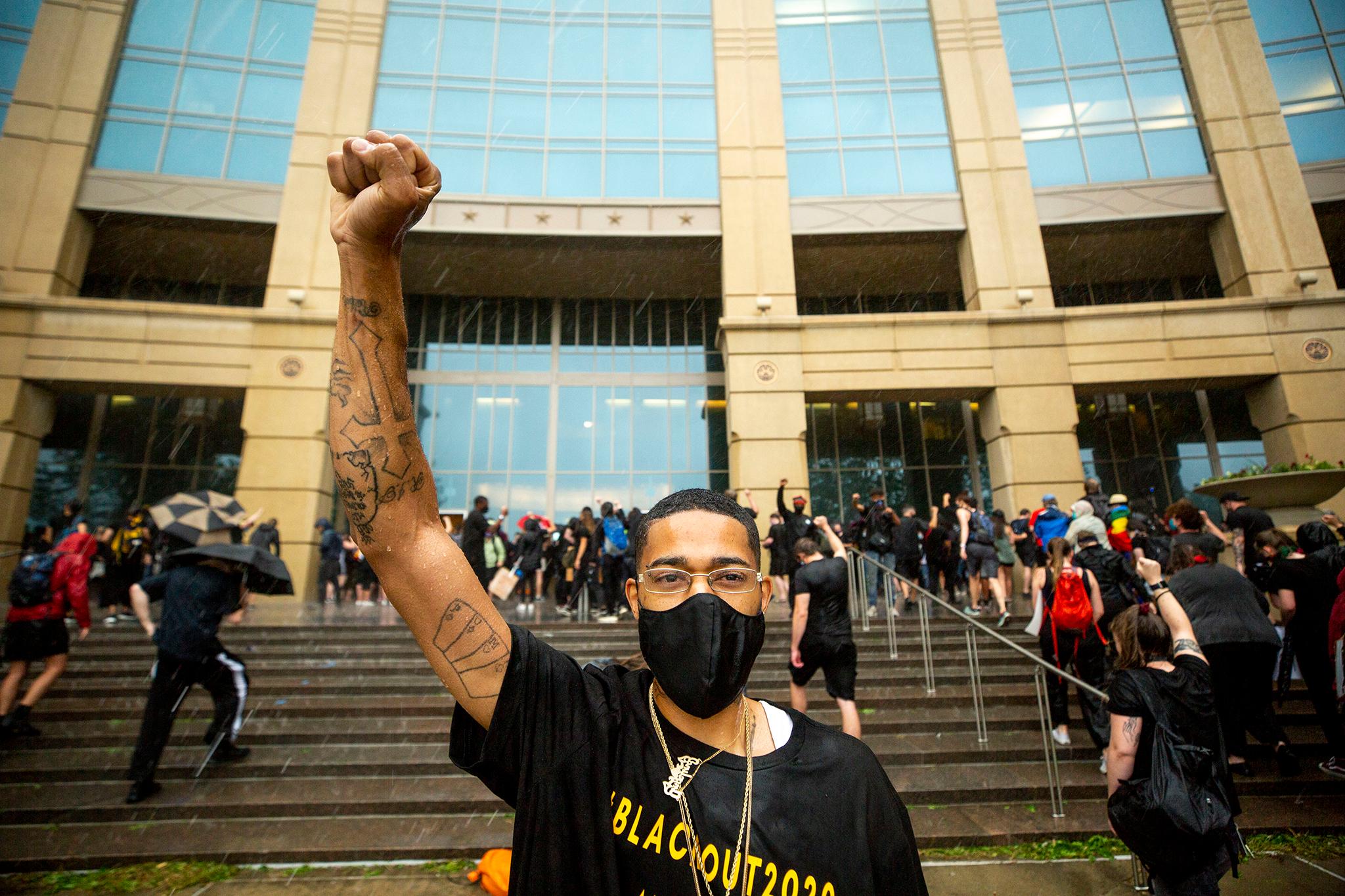
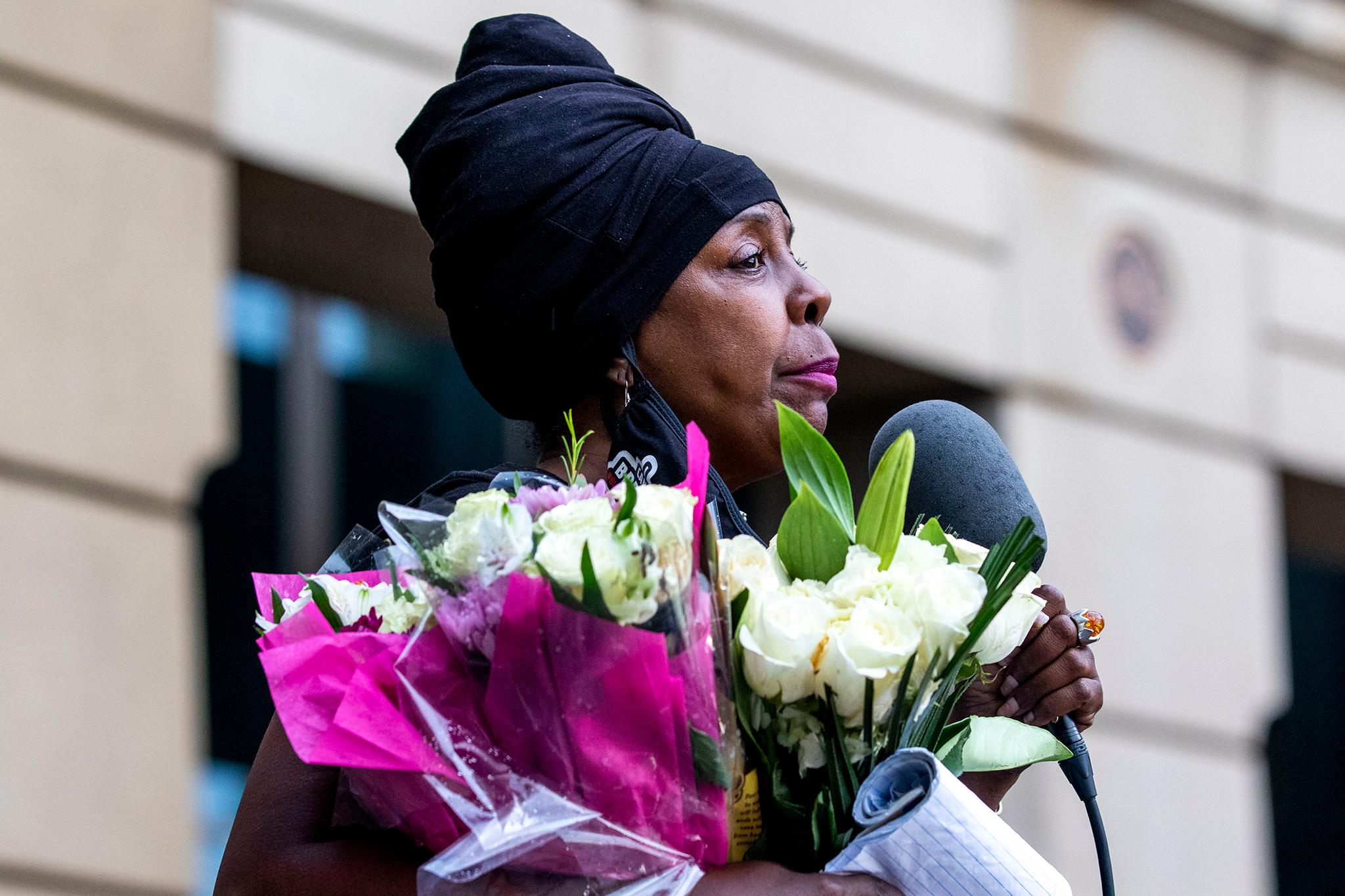
Talk at the rally was not limited to police brutality.
"We've got an opportunity to really look at economic and educational injustice. We can erase achievement gaps," said Ryan Ross, CEO of the Urban Leadership Foundation of Colorado.
While he meant schooling for children of color, it became clear he had another education gap on his mind.
"To my white brothers and sisters, I appreciate you. I feel you. I've been getting a lot of questions, 'What can I do?' Here's what you can do: educate yourself," he said. "Here's the deal: black lives matter. And when you know better, you do better."
And Terrance Roberts, a former Park Hill Blood who has become an anti-violence activist, stirred the crowd with talk of dismantling the structural racism that has invited violence into Denver's underserved neighborhoods. There was violence in Montbello just last night, he said.
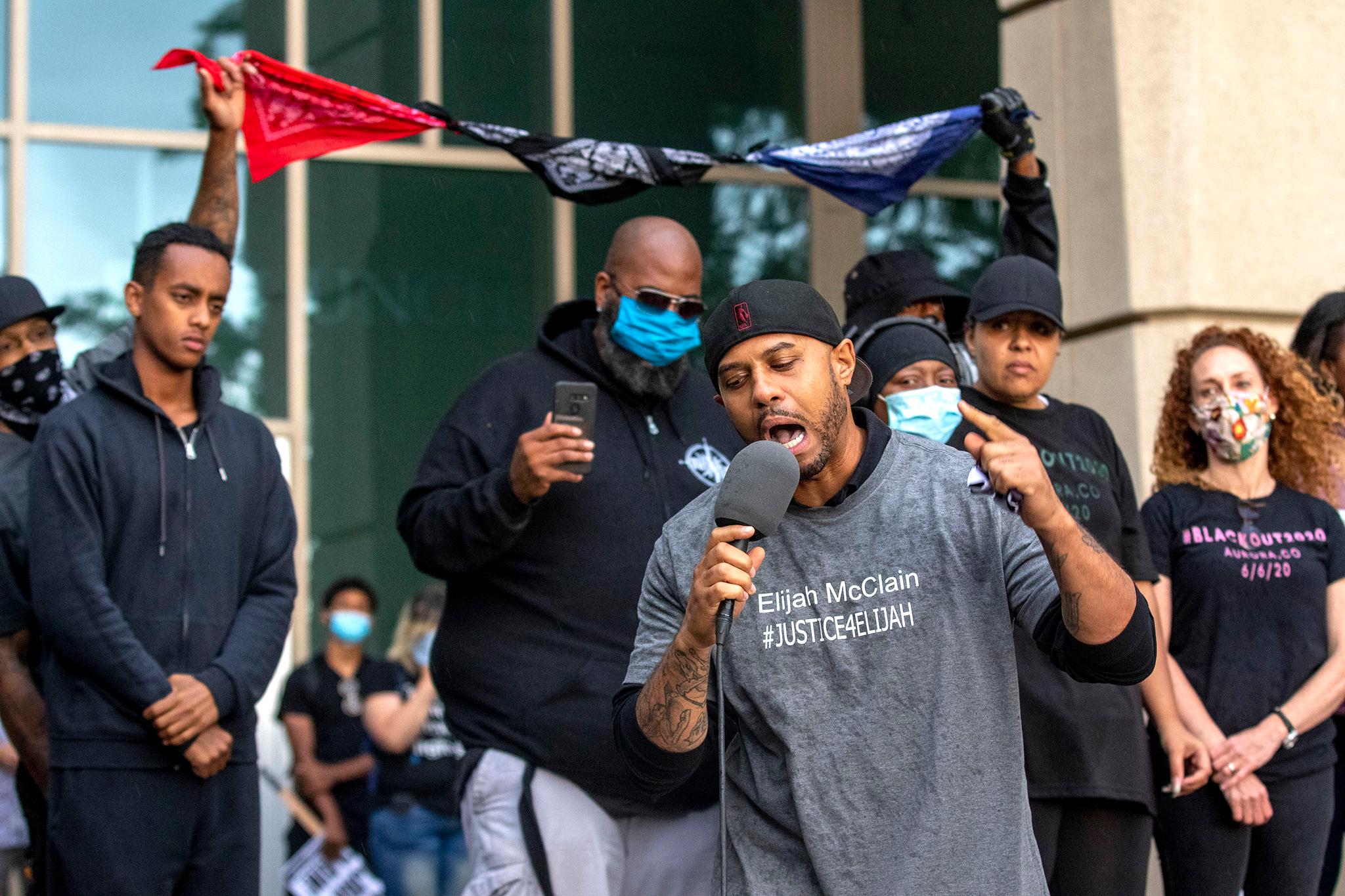
"There is white supremacy and systemic racism, and that is why someone chose to pick up a gun last night," he said. "The fact that we have young men and women who feel hopeless, who feel there's nobody who cares, that they have to become gang members in the land of the 'so-called free.' In the land of the cowards who murder people of color."
Roberts called for an end to racism, an end to gang violence, an end to environmental injustice, even animal abuse.
"The time is now. The time is right now," he said. "We're coming against all the bulls*** that's killing us."
